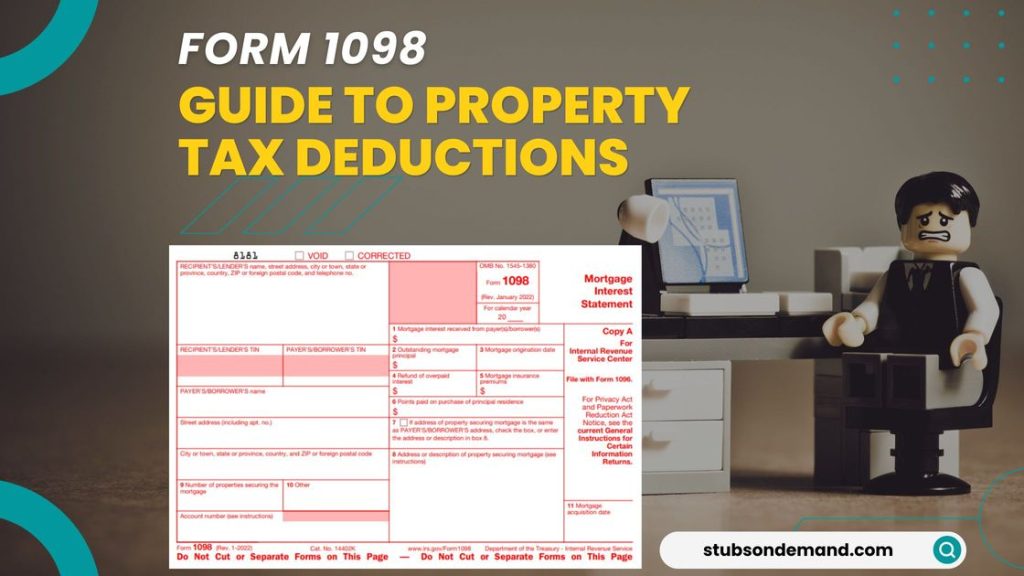Nobody likes paying taxes on their property, particularly those who reside in a state with higher tax rates. The property tax deduction, which might lower your tax obligation, is the one bright spot in this situation. You can get all the information about homeowners’ taxes from the IRS. To simplify, and help you understand who claims property tax deductions and benefits, we present the basic guide to Property Tax Deductions.
Before we begin, let’s clarify that this guide is exactly what you need if you require assistance setting up a tax payment schedule with the IRS.
An Introduction to Property Tax Deduction
When paying taxes, homeowners deduct state and local property taxes from their federal income taxes. Taxes on improvements or services like trash collection are not included in this tax deduction, but we’ll discuss what you may and cannot write off later.
This type of deduction has a cap imposed by the Tax Cuts and Jobs Act, which stands at $10,000 or $5,000 if you’re married but file your taxes separately. The property tax deduction cap for 2020. There was no cap on the property tax deduction before this law.
This has led to many comparing the property tax deduction for married and single people. Now that the limit amount is not shared with a spouse, it is clear that unmarried people benefit much from property tax exemptions.
However, if you and your spouse file your taxes jointly as opposed to separately, you can both benefit from the maximum rather than sharing it. The property tax deduction married vs single debate ultimately raises a lot of questions.
Who claims a property tax deduction?
Who claims a property tax deduction is one of the most often asked issues regarding property taxes. Property owners that itemize their tax returns are the solution. But first, let’s define what a property tax deduction is before we go any further.
As a property owner, you are already aware that you must pay property taxes on your home, which the state or local government assesses annually depending on its worth. You may qualify for a tax break on all or a portion of the real estate taxes you paid.
With tax deductions, you both cut your tax liability and taxable income. Your taxable income decreases when the amount of your tax deduction is subtracted from it, which lowers your overall tax burden.
The fact that property taxes are deducted in the year you pay them rather than the year they were assessed is a key aspect of the property tax deduction. So, let’s imagine a bill for your property taxes was sent in October 2022. Therefore, your 2023 tax return will be when you take a tax deduction.
Special considerations when calculating Property Tax Deduction
When it comes to property tax deductions, there are a few unique factors you should be aware of. One is that taxes on property used for business or rental purposes, cannot be deducted. There are other products that you cannot deduct as well.
For instance, you won’t be able to deduct money spent on local residential area upgrades or service delivery. We strongly advise you to study Form 1098 to fully comprehend specific concerns.
Additionally, if you purchased a home and paid the seller’s back taxes after the deal was finalized, you will not be able to claim those payments as a tax deduction. Why? since it is included in the price of buying the house.
What can be taken off?
The property tax deduction maximum for 2022 is as previously stated: $10,000, or $5,000 if you’re married but file your taxes separately. You may be eligible to write off your property taxes for:
- Your primary home.
- A co-op apartment.
- Your vacation or secondary home.
- Your land.
- The estate you own outside of the state.
- RVs, cars, and other kinds of vehicles.
- Boats.
You can deduct property taxes paid on your principal residence, secondary residence, or even undeveloped land if you own them all. However, you can deduct that differently. It won’t allow you to subtract property taxes on an investment property.
What Is Not Deductible?
Of course, not everything can be written off, so you need to be aware of those items. The IRS prohibits homeowners from deducting some expenses from their property taxes, such as:
- Taxes on real estate that is not yours.
- Taxes on real estate that have not yet been paid.
- Evaluations of the roadways, sidewalks, water and sewer systems, and building infrastructure in the area where you live.
- Water, gas, and trash removal are not deductible services.
Because they are regarded as a component of the home’s cost, transfer taxes are paid upon closing evaluations carried out by a homeowners’ association.
Additionally, one-time payments made to finance home renovations that save energy are not deductible.
Final Words
Understanding and claiming property tax deductions can significantly impact your tax liability. However, the complexities involved in determining deductible expenses, especially with the introduction of caps and specific regulations, highlight the importance of seeking professional advice.
Consulting with a licensed CPA firm can provide personalized guidance tailored to your unique financial situation. A qualified professional can navigate the nuances of property tax regulations, ensuring that you maximize your deductions while staying compliant with tax laws.
Before claiming property tax reduction, it is advisable to engage with experts who can offer comprehensive insights and help you make informed decisions regarding your tax obligations.

